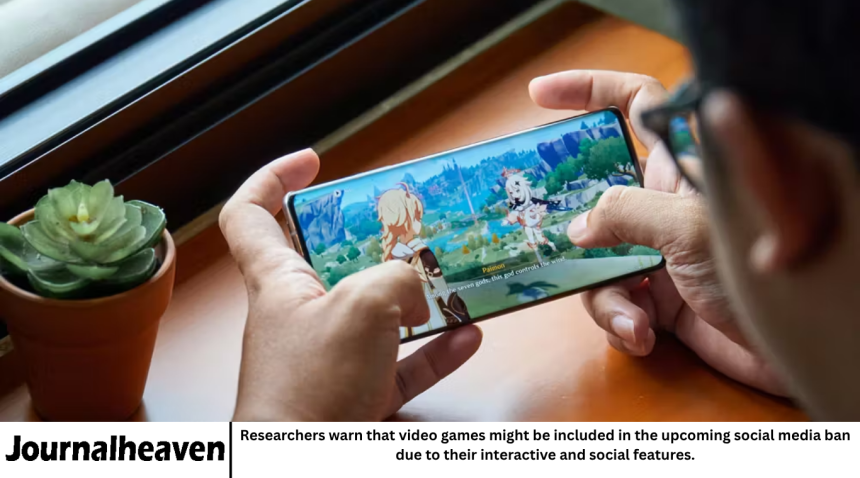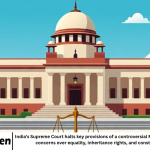As governments worldwide tighten regulations on social media platforms to address concerns around data privacy, online safety, and content moderation, a new area of concern is emerging: video games. Researchers are now warning that video games, particularly those with interactive and social features, might fall under upcoming social media bans or restrictions.
- What Are Social Media Bans and Why Are They Happening?
- Why Are Video Games Under Scrutiny?
- How Could Video Games Be Affected by Social Media Bans?
- The Debate: Should Video Games Be Regulated Like Social Media?
- Industry Response and Adaptation
- What Does This Mean for Gamers?
- Looking Ahead: The Future of Gaming and Social Media Regulation
- Frequently Asked Questions
- Conclusion
This development could have far-reaching consequences for gamers, developers, and the digital entertainment industry. Understanding why video games might be included in these regulations, and what it means for the future, is crucial for anyone involved in gaming or digital media.
What Are Social Media Bans and Why Are They Happening?
Social media bans or regulations are government-imposed restrictions on social media platforms aimed at protecting users, especially minors, from harmful content, misinformation, and privacy violations. These bans often arise from concerns about:
-
Data misuse and privacy breaches
-
Spread of fake news and harmful content
-
Mental health impacts, particularly on young users
-
Political interference and security risks
Countries like China, Russia, and recently Pakistan have implemented or considered social media restrictions. Some bans involve blocking certain platforms, while others impose strict rules on how platforms operate.
Why Are Video Games Under Scrutiny?
Video games, especially multiplayer and online games, have evolved far beyond simple entertainment. Many incorporate social networking features such as:
-
In-game chat and voice communication
-
Social media-like profiles and friend lists
-
Streaming and sharing functionalities
-
Virtual economies and digital identities
These features blur the lines between gaming and social media. Researchers argue that because video games enable social interaction and data exchange similar to social media, they may fall within the scope of social media regulations.
How Could Video Games Be Affected by Social Media Bans?
If video games are included in social media bans or regulations, several impacts could follow:
-
Access Restrictions: Some games might be banned or restricted, limiting access for users in affected countries.
-
Data Privacy Compliance: Developers may need to comply with stringent data privacy laws, changing how user data is collected and managed.
-
Content Moderation: Games with social features might face increased content moderation demands to prevent harassment, hate speech, or harmful behavior.
-
Operational Costs: Compliance could raise costs for developers, especially smaller studios.
The extent of the impact depends on how broadly governments define social media and whether exceptions are made for entertainment content.
The Debate: Should Video Games Be Regulated Like Social Media?
The idea of regulating video games as social media sparks debate among experts, industry players, and users.
Arguments For Regulation:
-
Protecting users from online harassment and bullying common in multiplayer games
-
Addressing addiction and mental health concerns related to social gaming
-
Ensuring data privacy and security for millions of players worldwide
Arguments Against Regulation:
-
Video games are primarily entertainment and should not be restricted like social media platforms
-
Over-regulation may stifle creativity and innovation in the gaming industry
-
Many games already have moderation tools and community guidelines
Finding the right balance is complex and requires input from multiple stakeholders.
Industry Response and Adaptation
The gaming industry is closely monitoring regulatory developments. Some major companies are proactively enhancing their privacy policies, content moderation, and player safety features.
Developers are investing in AI-driven moderation tools and community management to create safer environments. Moreover, industry groups advocate for clear, fair regulations that protect users without hindering growth.
What Does This Mean for Gamers?
For players, possible social media bans extending to games could mean:
-
Limited access to favorite games or features
-
Increased verification or age restrictions
-
Changes in online community dynamics due to moderation
-
Greater focus on privacy and data protection
Gamers should stay informed about changes in their regions and understand how these may affect their gaming experience.
Looking Ahead: The Future of Gaming and Social Media Regulation
As digital platforms evolve, regulators worldwide face the challenge of keeping up with technology. The overlap between gaming and social media will likely increase, prompting more nuanced rules.
Future legislation may define social media more broadly or create specific categories for interactive entertainment. Collaboration between governments, industry, and user groups will be key to shaping fair policies.
Frequently Asked Questions
Why might video games be included in social media bans?
Because many games have interactive social features similar to social media platforms, making them subject to the same regulations.
What features of video games resemble social media?
In-game chats, friend lists, streaming, sharing, and virtual economies mirror social networking functions.
How would a social media ban affect gamers?
Gamers could face restrictions, enhanced moderation, privacy changes, and limited access to certain games.
Are all video games at risk of being banned?
Not necessarily. Impact depends on the game’s social features and how laws define social media.
How is the gaming industry responding to these concerns?
By improving privacy, content moderation, and advocating for balanced regulations.
Could regulation harm the gaming industry?
Over-regulation might limit innovation and increase costs, especially for smaller developers.
What can gamers do to stay informed?
Follow updates from game developers, regulators, and industry groups to understand changing rules and impacts.
Conclusion
The warning from researchers that video games could fall under social media bans highlights the changing landscape of digital interaction. As games incorporate more social features, their regulation may mirror that of traditional social media platforms.
Understanding these potential changes helps gamers, developers, and policymakers prepare for a future where gaming and social media increasingly intersect. The goal will be to protect users while preserving the creativity and enjoyment that define video games.








